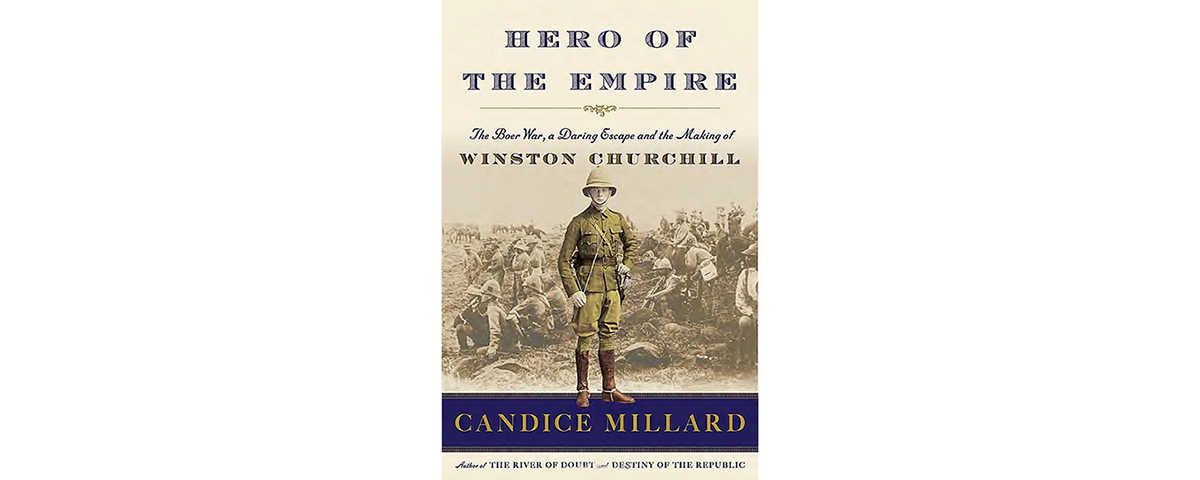Hero of the Empire: The Boer War, a Daring Escape and the Making of Winston Churchill, by Candice Millard, Doubleday, New York, 2016, $30
Winston Churchill had already distinguished himself during the 1897 Malakand campaign on India’s North-West Frontier and in the 1898 charge of the 17th Lancers at Omdurman. When the British launched their war against South Africa’s Boer settlers in 1899, Churchill approached The Morning Post and at 24 became the highest paid war correspondent in Britain. He clearly planned to live the high life, as his luggage for the voyage south included a dazzling array of wines and spirits worth $4,000 in today’s currency.
In this biography, subtitled in part The Making of Winston Churchill, Millard, author of the best-selling River of Doubt, relates the epic story of Churchill’s capture just two weeks after arriving in South Africa and his subsequent escape. Anxious to reach Ladysmith, Churchill grasped the opportunity to travel on an armored train, the benefits of which were dubious in the extreme, later describing it as “a locomotive disguised as a knight errant.” Commanding the train was Aylmer Haldane, an old friend from his days with the Tirah Field Force on the North-West Frontier.
His doubts were justified, as Boer commandos derailed part of the train and then surrounded it on three sides. For over an hour under continual fire Churchill directed efforts to clear the line so the locomotive and what was left of the train could escape. Churchill himself was among the more than 50 men captured by the Boers.
Barely three weeks later he again escaped, making an epic 300-mile journey by several trains to Portuguese East Africa. At one point he hid in a clump of trees under the scrutiny of a vulture “who manifested an extravagant interest in my condition,” and he also spent three days concealed in a coal mine. After 11 days on the run Churchill finally reached Durban, soon becoming an international celebrity.
He later recalled the saga in his autobiography My Early Life: “Youth seeks adventure. Journalism requires advertisement. Certainly I had found both. I became for the time quite famous.” He certainly had. A well-known story, perhaps, but always worth another read, and here quite brilliantly told.
—David Saunders





